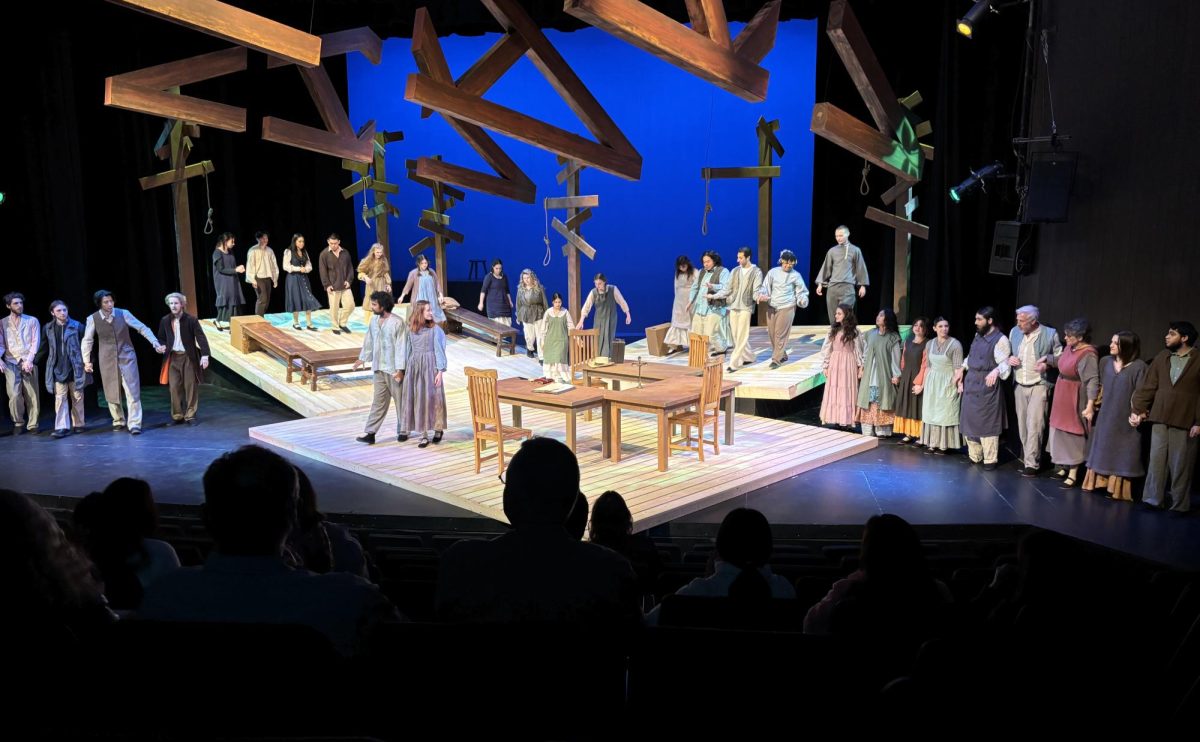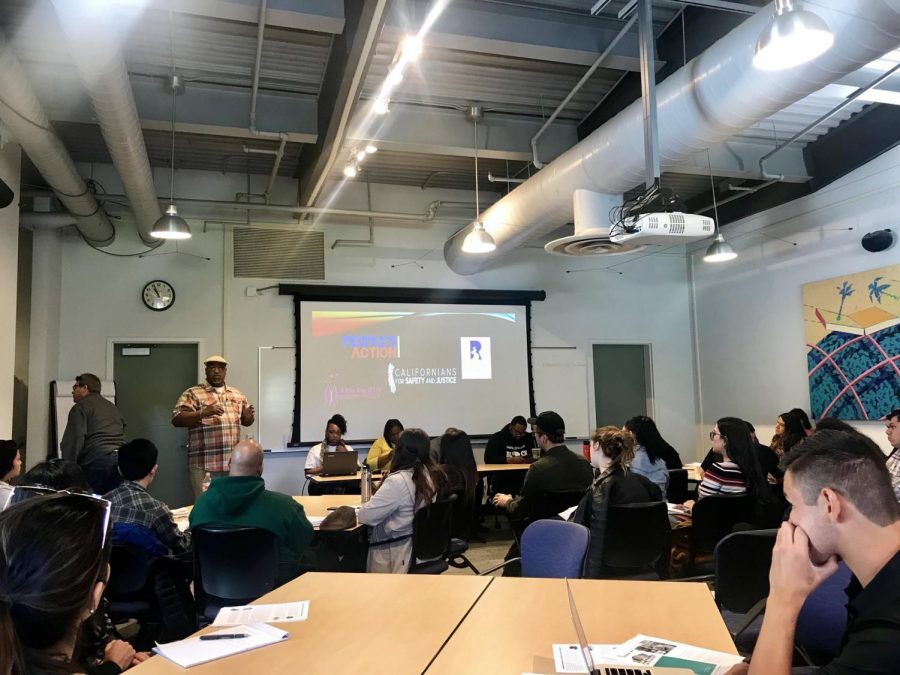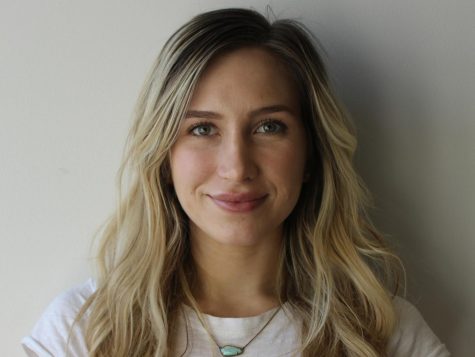The Social Justice Series features speakers on ending mass incarceration in America
Jerry Elster speaking in the Community Conference Center at Diablo Valley College on April 13, 2018.
April 18, 2018
The Social Justice Series at Diablo Valley College held an event on the topic of abolishing mass incarceration in America last Friday in the Community Conference Center on the Pleasant Hill campus.
This event was hosted by political science professor Albert Ponce and Executive Director of the Safe Return Project Tamisha Walker.
Various speakers also represented different projects and action groups within the DVC community and beyond who seek to reform the criminal justice system.
The Safe Return Project focuses mainly on improving the quality of life for those returning home from incarceration. They seek to build a base of power that addresses the root cause of poverty and incarceration in communities of color.
“Our vision is to empower and free divisibility to all those who have been impacted by the criminal justice system as a group,” Walker said.
Walker said that most formerly incarcerated want access to jobs and safe communities. But The Safe Return Project looks beyond that and believes in, “changing the narrative, and any racial injustice within the criminal system.”
Walker added the project seeks to accomplish these goals by community organizing, research and advocacy.
“This kind of collective power will drive larger political strategies by the formerly incarcerated at the state level, increase mobilization and fight for the rights and opportunity for all persons coming home from incarceration to be legally protected from discrimination,” said Walker.
Jay Jordan, the Project Director of Second Chances, said, “We want to build a new safety constituency, redefining the definition of safety and making a global standard.”
Jordan’s work is on getting rid of convictions by focusing on litigation, policy and ballot initiatives. His ultimate aim is to create a sunset clause in California that puts a washout period on convictions.
Ingrid Archie represented The New Way of Life Re-Entry Project, and they focus on representing formerly incarcerated women and retaining prisoners’ right to vote. They educate by making sure people in the community understand ballot initiatives and what a “yes” or “no” vote would mean.
Jerry Elster said his work with Rubicon Programs is to, “Help people in Contra Costa interrupt the cycles of poverty. We have a systemic way which we work with folks that are looking for jobs, folks that would have never got an opportunity.”
Brandon Sturdivant, who represents the People’s Action, works at solving mass incarceration in a different way.
Sturdivant explained his organization focuses on getting progressive prosecutors elected as they ultimately have the decision on whether somebody will be charged with a crime or not.
Sturdivant said, “If we focus on the prosecutor, and no longer criminalize people of color and actually look to help communities rebuild we will end mass incarceration.”
The campaign believes to make a change, you have to be educated on the criminal justice system as a whole and not partially understand it.
The People’s Action’s presentation said, “America’s inequality is founded upon the demonization of the poor people of color and Black (sic.) people in particular. We must elevate the voices of the disenfranchised and their families, and support them as allies.”








































































